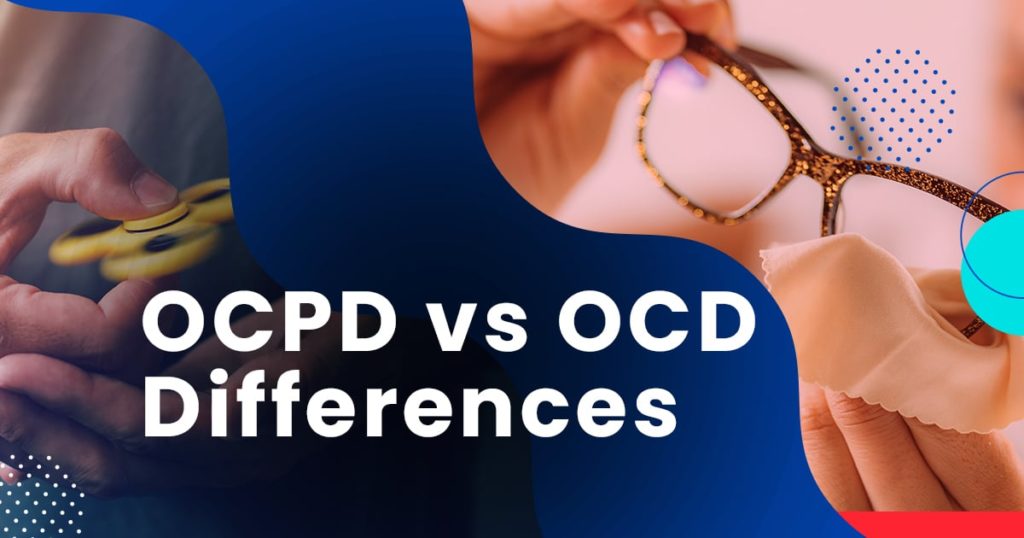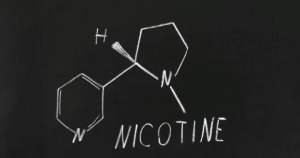OCPD vs OCD is a comparison you may have questions about. The two are mental health conditions with similarities but also distinctions.
OCPD is an obsessive-compulsive personality disorder. When someone has an obsessive-compulsive personality disorder, they may be obsessed with small details of their life. Someone with this personality disorder may focus on perfectionism, control, and strict orderliness.
Having this personality disorder is different from obsessive-compulsive disorder or OCD. OCD is a mental health condition with a set of diagnosable symptoms included in the Diagnostic and Statistical Manual of Mental Disorders, 5th edition (DSM-5). OCD shares some similarities with anxiety disorders as well.
What is OCPD?
A personality disorder leads to long-term behavioral patterns and inner experiences significantly different from the expectation or norm.
When someone has a personality disorder, their experience and behavior patterns usually begin by late adolescence or the early adult years. Someone with a personality disorder may experience disruptions in functioning and distress.
Personality disorders will affect at least two of four areas, which are:
- How you think about yourself and other people as well as interpersonal relationships
- The ways you emotionally respond
- How you relate to other people
- Control of your behavior
OCPD is one of many personality disorders. Other common personality disorders include borderline personality disorder, avoidant personality disorder, and dependent personality disorder.
OCPD is a pattern where someone has a preoccupation with perfection and control. Someone with this disorder might be too narrowly focused on schedules or details. People with this disorder might not take time for leisure or relaxation. A person with this disorder may also have very strict views about their values and morals, with no room for flexibility, happening in a pervasive pattern.
Someone with an obsessive-compulsive personality disorder may be so focused on perfection for themselves and the people around them that they’re obsessive.
Traits of OCPD can include:
- High-achieving and high-functioning
- Has a hard time understanding the point of view of others
- Problems with constructive criticism
- Seeking out patterns of order and control
- A desire for perfectionism that interferes with actual task completion
- Preoccupation with details
- Preoccupation with orderliness
- Difficulties discarding unneeded objects
- Inability to delegate
- Avoiding intimacy in various aspects of life
- Getting stuck on certain ideas
- Reduced emotional expression
- Problems with empathy
With a personality disorder, the symptoms don’t fluctuate. Instead, over time they become more consistent in most cases.
These disorders are usually diagnosed based on long-term deviations from cultural norms and expectations. Sometimes, the symptoms can overlap with one another, making diagnosis challenging. Personality disorders can also share symptoms with mental health disorders, including anxiety, depression, and substance abuse.
Treatment depends on the specific situation. For someone with mild symptoms that are typically well-controlled, treatment may only include working with a therapist regularly. For other people with more severe symptoms that aren’t well-controlled, finding a specialist may be helpful.
Talk therapy is the primary treatment.
Psychotherapy is talk therapy. Someone with a personality disorder works with a mental health professional during talk therapy. They discuss their moods, thoughts, behaviors, and feelings. The goal is to learn ways to deal with stress and get the disorder’s symptoms under control.
Treatment may also include training on social skills or family therapy.
There aren’t medicines specifically for treating personality disorders right now, but psychiatric medication may help some symptoms. For example, mood stabilizers and antidepressants are two treatment options.
Mental Health Center of San Diego
What is OCD?
Obsessive-compulsive disorder or OCD is a mental disorder. Obsessions and compulsive behaviors characterize the mental disorder. You may realize your obsessions and compulsions or repetitive behaviors negatively affect your daily life and quality of life, but you can’t control them.
Various factors contribute to developing OCD, including brain chemistry, genetic components, and your environment. The same is true of other psychiatric disorders and mental illnesses.
- Obsessions are repeated mental images, thoughts, or urges that create anxiety.
- Someone with obsessions may focus on fears of contamination or germs, a constant fear of losing something or harming yourself or others.
- Aggressive thoughts, unwanted sexual thoughts, or the need to line things up in a certain way can also be common obsessions we see in OCD.
- Compulsions are behaviors you could repeat to reduce your anxiety or stop your obsessions.
It’s possible to have obsessions and compulsions without a diagnosis of OCD.
- Typically, for a diagnosis of OCD, you would have to be out of control over your thoughts or behaviors and spend at least an hour a day on them.
- Someone with OCD doesn’t get pleasure from the behaviors, but they may temporarily feel anxiety relief.
- Another diagnostic symptom is having problems in your daily functionality because of your thoughts or behaviors.
Effective treatment for OCD usually includes cognitive-behavioral therapy or CBT. CBT is one type of psychotherapy. CBT helps you think, behave and react differently to your obsessions and compulsions. Medication may also be part of a treatment plan. Medicines for OCD usually include specific types of antidepressants.
Mental Health Center of San Diego
OCPD vs OCD
When it comes to OCD vs OCPD differences, there are a few, although there are overlaps between the conditions as well.
- With OCPD, the personality traits someone has aren’t guided by uncontrollable or irrational thoughts or behaviors. With OCD, that’s the core of the mental health disorder.
- Someone with OCPD may still engage in very rigid behaviors based on specific procedures they want to follow, but there aren’t the intrusive thoughts or the compulsions of OCD.
- Another key difference in OCPD vs OCD is that OCD tends to be distressing for the person experiencing it. If you have OCD, you are upset by your thoughts or behaviors, but you can’t control them. If someone has OCPD, they usually think their actions are purposeful and do them for a reason, so they aren’t distressing for them.
- It can also be more difficult for people with OCPD to realize they need professional help because they don’t see a problem.
- A third significant difference in OCPD vs OCD is that obsessive-compulsive disorder symptoms tend to fluctuate depending on a person’s underlying level of anxiety. Someone with OCD is often engaging in certain behaviors to deal with anxiety and fear or feelings of uncertainty. If someone has OCD, but they’re in a period where they’re experiencing less anxiety, they may have less severe symptoms.
- OCPD, as a personality disorder, is inflexible. The behaviors characterizing obsessive-compulsive personality disorder are usually unchanging and consistently persistent. There’s no fluctuation based on underlying anxiety, and the traits occur in all parts of a person’s life.
Mental Health Center of San Diego
Finding Treatment in Southern California
There are similarities in obsessive-compulsive disorder and obsessive-compulsive personality disorder and major differences. Namely, with OCD, you feel distressed because of your obsessions and compulsions, whereas with OCPD and other personality disorders, a person may not feel this distress.
If you’re struggling with a mental health disorder or personality disorder symptoms, treatment options are available. We encourage you to reach out to the Mental Health Center of San Diego team of professional treatment providers by calling (858) 258-9883 to learn more.









